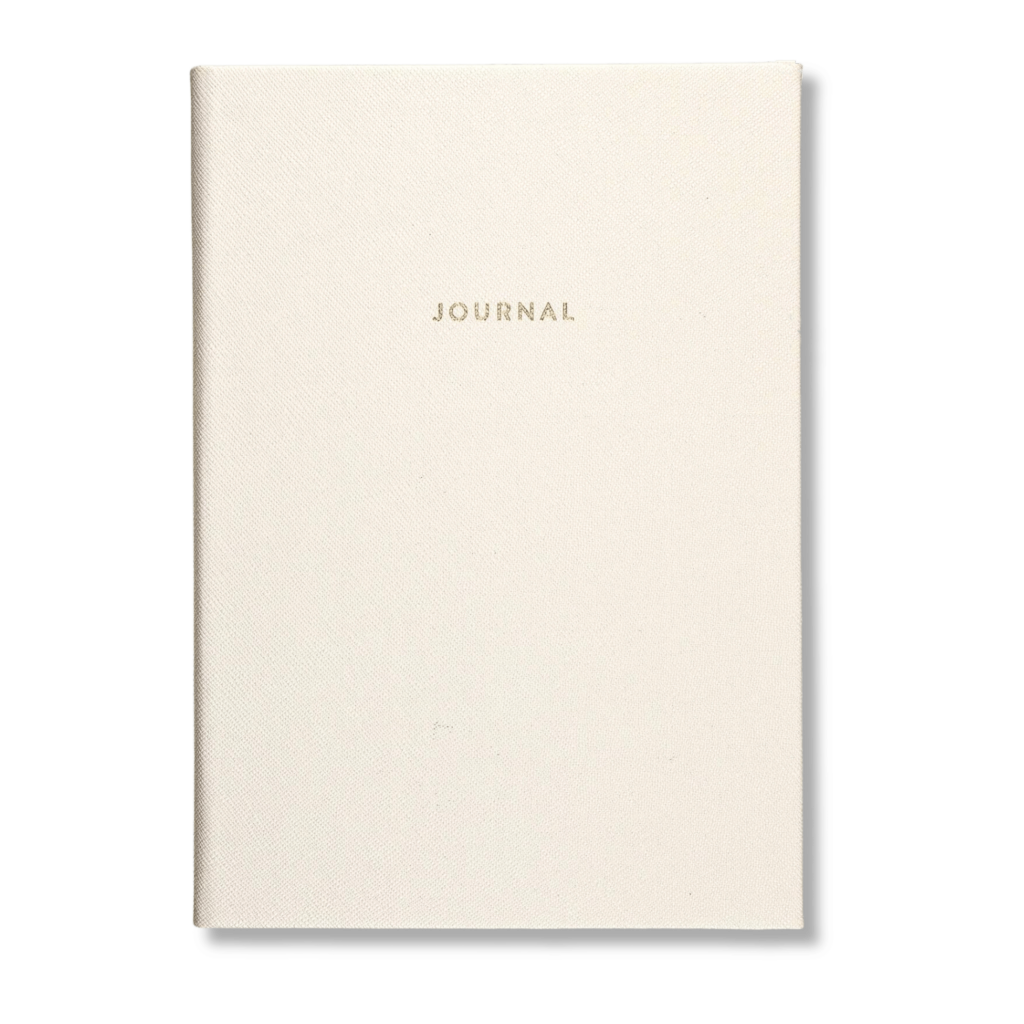Forgive to Heal: 18 Journal Prompts for Practicing Forgiveness
Embracing forgiveness can open the door to emotional healing, and one wonderful way to embrace this journey is through journaling, and specifically journal prompts for forgiveness.
Our lives are often touched by moments of pain, hurt, and resentment that can weigh on our hearts and affect our emotional and overall well-being. Journal prompts for forgiveness can act as your companion, assisting you in exploring, understanding, and eventually letting go of these feelings.
These prompts offer you an introspective avenue to confront your emotional challenges and transform them into stepping stones towards a healthier and balanced mind space.
Keep reading as we unpack the healing power of forgiveness through the simple yet profound practice of journaling.
Understanding the Power of Forgiveness in Healing
Forgiveness, often misunderstood as weakness, is actually an act of tremendous strength.
Forgiveness is a truly wonderful tool that can help us heal from old wounds and emotional pain. Sometimes, it can be a bit challenging to find our way to genuine forgiveness, but I want to share with you how this incredible act of strength can lead to personal growth and emotional healing.
Journal prompts for forgiveness can serve as productive tools, guiding you on a path that promotes personal growth while moving past feelings of bitterness and resentment.
Journaling gives us the ability to explore and navigate our complex emotions in safe, personal spaces. Similar to having a private conversation with yourself, allowing you to really reflect on your feelings and thoughts, including negative ones.
When applying journal prompts for forgiveness, you’re not just venting your feelings but also learning how to release them, leading to the pivotal step of healing. These prompts guide us towards the act of forgiveness and bridge the gap between hurt and healing.
Techniques to Get Started With Forgiveness Journaling
Before we delve into some actionable journal prompts, take a moment to connect with yourself. If the pain is still fresh, or if this is your first time exploring it, be kind and very gentle with yourself.
Make sure you’re creating a safe space that’s free from judgment, as we’ve all been our own harshest critics before. Healing and forgiveness take time, so completing these journal prompts quickly won’t speed up your healing. Therefore, don’t rush your journey.
Begin by sitting quietly and acknowledging your thoughts, feelings, and emotions regarding the situation.
Reflect on what’s happening within your body and mind.
Are your thoughts racing, or is it peaceful and quiet? Do you feel tension in your body? Are you sitting with your arms and legs crossed?
These subtle bodily reactions as you sit with your emotions about the situation can provide valuable insights even before you begin journaling. So, pay close attention to yourself in this moment – your body language, the nature of your thoughts, and how often they come and go.
Bring awareness to your current mental, emotional, and physical state.
Unpacking your feelings is the first step in this journey. Remember, this process is all about self-reflection and self-compassion, so take it one step at a time.
A helpful technique to start with is self-forgiveness. By using journal prompts, you can uncover moments when you’ve been too hard on yourself or where guilt and regret linger. Bringing these emotions to the surface can offer you an opportunity to view things from a different perspective and gently begin to shift your mindset. This is a potent way to initiate your understanding of forgiveness.
To make this process even more therapeutic, set up a tranquil writing space. It could be a quiet room, your favorite cozy nook, or simply a relaxing evening with your preferred warm beverage. This serene environment can help you create a safe space to focus and express your genuine emotions.
Disclaimer: Writing about painful experiences can be challenging, so it’s essential to be honest with yourself. I encourage you to seek professional help if you are struggling with intense, overwhelming, and recurring painful thoughts that have a significant negative impact on your daily life.
Approach forgiveness journaling with patience, sensitivity, and an open heart. Remember, this journey towards forgiveness is primarily about your well-being. It’s a step towards inner peace and healing. So, take your time and embrace the process with warmth and kindness.
Guided Prompts for Writing Your Way to Forgiveness
Begin your journey toward forgiveness with these guided prompts. They are crafted to help you become more aware of the thoughts and emotions that are in need of forgiveness.
Journal Prompts for Forgiveness of Self:
1. Understanding Self-Compassion: How do you typically treat yourself when you make mistakes or face challenges? Can you identify any self-critical thoughts or beliefs? How can you begin to practice self-compassion?
2. Regret and Letting Go: What is one thing from your past that you regret? How has this regret affected you? What steps can you take to start letting go of this regret and offer forgiveness to yourself?
3. Accepting Imperfections: What aspects of yourself do you find it difficult to accept? How might accepting your imperfections help you in your forgiveness journey?
4. Apologizing to Yourself: If you could speak kindly to yourself as if you were a dear friend, what would you apologize for? How can you offer yourself forgiveness in this situation?
5. Reframing Self-Blame: Reflect on a situation where you’ve blamed yourself excessively. What other perspectives or explanations could you consider that might help reduce self-blame?
Journal Prompts for the Forgiveness of Others:
6. Reflecting on the Offense: Describe the situation or person you need to forgive. What were the actions or words that hurt you? How did it make you feel?
7. Empathy Exercise: Try to see the situation from the other person’s perspective. What might have motivated their actions? How does understanding their viewpoint influence your ability to forgive?
8. Setting Boundaries: In cases where forgiveness is necessary but not reconciliation, what boundaries can you set to protect yourself while still offering forgiveness?
9. Releasing Resentment: What emotions are tied to the person you need to forgive? How can you start releasing any lingering resentment?
Journal Prompts for the Forgiveness of the Past:
10. Impact of the Past: How have past experiences shaped your present life? What aspects of your past are you struggling to forgive, and how does this affect your current well-being?
11. Reframing Events: Choose a specific event from your past. Can you find any silver linings or personal growth that emerged from that experience?
12. Acknowledging Growth: Reflect on how you have grown and changed as a result of your past experiences. What strengths and qualities have you developed through these challenges?
13. Redefining Your Story: Consider rewriting your personal narrative regarding a past event. How can you tell a story that emphasizes resilience, healing, and forgiveness?
Journal Prompts for the General Forgiveness:
14. Old Anger: Explore any lingering anger or resentment you may be holding onto. How long have you been holding onto these feelings of anger? What purpose does it serve, and how might you begin to release it?
15. Seeking Support: Are there friends, family, or professionals you can turn to for support on your forgiveness journey? How can you safely involve them?
16. Forgiveness as a Daily Practice: How can you incorporate forgiveness into your daily life, both as a mindset and a practice?
17. Letting Go of the Past: What physical or symbolic action could you take to symbolize your commitment to releasing the past and moving forward?
18. Finding Meaning: Consider how the process of forgiveness can bring meaning and purpose to your life. What lessons have you learned from your experiences?
Remember that forgiveness is a deeply personal journey, and it may take time. Be gentle with yourself as you explore these prompts, and allow the process to unfold at your own pace.
Emotional Freedom Through Practicing Forgiveness
Beneath anger, resentment, and regret, there’s often a desire for freedom, a wish to break free from the emotional toll of these feelings. Starting a journey of forgiveness can help untangle these complex emotions, paving the way for emotional freedom.
Research shows that using journal prompts for forgiveness is a helpful way to let go of grudges, resentment, and other negative feelings. These prompts give you a structured way to release these emotions, making room for more positive experiences in life.
As you practice forgiveness through journaling, you take steps away from emotional turmoil and move toward peace and happiness. It’s a process that changes the way you think about past hurts, helping you find acceptance and healing.
This journey can be empowering. Each journal entry strengthens your ability to forgive, making it easier to let go. Forgiveness doesn’t just heal past wounds; it also equips you to handle future challenges with resilience and grace.
So, remember that forgiveness isn’t just about being kind to others; it’s also a way to be compassionate to yourself and to find emotional freedom.
The Role of Self-Forgiveness in Well-Being
Self-forgiveness is often overlooked in personal growth discussions. However, it plays an important role in your well-being, and some might even argue it’s even more important than forgiving others.
Many people grapple with feelings of guilt and regret stemming from past decisions and actions. But through the practice of self-forgiveness, one can hope to put an end to it and may even start viewing the past as a valuable lesson rather than a regrettable mistake.
The process of journaling encourages us to express self-love and compassion. It allows us to face our actions, understand their impact, and work towards self-forgiveness. It’s a journey from self-blame to self-acceptance.
Ultimately, embracing self-forgiveness can enriches your life experience and nurture a peaceful state of mind.
How Daily Journaling Boosts Your Journey Toward Healing
Daily journaling offers a powerful way to address hidden emotions and begin the process of healing. It provides a consistent structure where you can openly confront and gradually explore your feelings. As time goes on, this practice can reveal paths toward forgiveness and healing.
When you use journal prompts for forgiveness on a daily basis, they become a potent tool for self-discovery. Each day, as you write, you delve deeper, gaining clarity on your emotions and recognizing thought and emotion patterns.
Think of it as developing a muscle. Daily journaling exercises the mental abilities involved in forgiveness. Over time, this repeated practice makes the act of forgiving feel less difficult and more like second nature.
This daily routine not only builds emotional resilience but also fosters self-awareness. It gently guides you towards a better understanding of your feelings and reactions. This accumulative effect enriches your journey towards healing, turning it into a path of self-discovery and personal growth.
Final Thoughts
In the realm of journaling and forgiveness, consistency is the key. Daily journaling becomes a guiding light, illuminating the paths toward healing and forgiveness. Think of it as a steady friend who helps you uncover your deepest feelings and thought patterns, making the process less challenging over time. This practice doesn’t just enhance your emotional strength; it also fosters self-awareness.
Ultimately, it transforms your journey from healing into self-discovery and personal growth. So, embrace daily journaling as a close companion on your path to forgiveness and emotional well-being.



